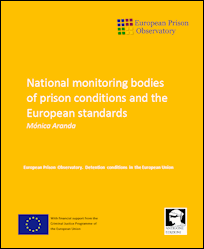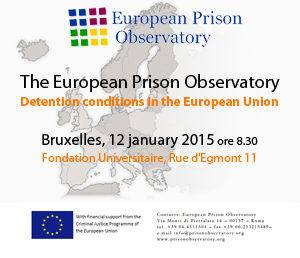Articles
Rights in prison in Europe and in Russia
With the support of the Eu-Russia Civil Society Forum Antigone and the Russian Ngo Man and Law developed the project “Rights in prison. EU-Russia Civil Society Forum and the defence of fundamental rights in the penitentiary system”.
On 6-8 July 2016, a working meeting of the team took place in Rome, Italy. Apart from the project partners - Alessio Scandurra from the "Antigone" Association (Rome) and Irina Protasova from the NGO "Man and Law" (Yoshkar-Ola), the events gathered representatives of the civilian oversight commissions from the Republic of Mari-Eland the Tomsk Region and the "For Civil Rights" Committee (Russia) as well as NGOs "A Buon Diritto" and "Forum Droghe" (Italy), and others.
On 6 July 2016, the Open Event "Civil Society in Russia and Italy. Share of Experiences and Cooperation Opportunities" was held.
Later on an Italian delegation travelled to Russia, but this time not everything went as planned. The representatives of three Italian human rights organisations - Antigone, Arcigay and A Buon Diritto - that were visiting the offices of the Committee for the Prevention of Torture in Nizhny Novgorod were detained by police for 10 hours and each fined 2,000 roubles for allegedly violating migration rules before being released. After the release the Italian embassy recommended the member of the Italian delegation to travel back to Italy as soon as possible.



 Marie Crétenot
Marie Crétenot
 The main objective of the project is to discuss the problems of prison administration and develop prison management; sensitize penitentiary systems to human rights issues; suggesting mechanisms to monitor prison conditions effectively and ensure accountability in respect of violation of human rig hts. For that reasons the research wants to promote the collection of data on prisons in Europe. The project wants to study, through quantitative and qualitative analysis, the present condition of the national prison systems and the related systems of alternatives to detention in Europe, underlining their peculiarities and weakness.
The main objective of the project is to discuss the problems of prison administration and develop prison management; sensitize penitentiary systems to human rights issues; suggesting mechanisms to monitor prison conditions effectively and ensure accountability in respect of violation of human rig hts. For that reasons the research wants to promote the collection of data on prisons in Europe. The project wants to study, through quantitative and qualitative analysis, the present condition of the national prison systems and the related systems of alternatives to detention in Europe, underlining their peculiarities and weakness.